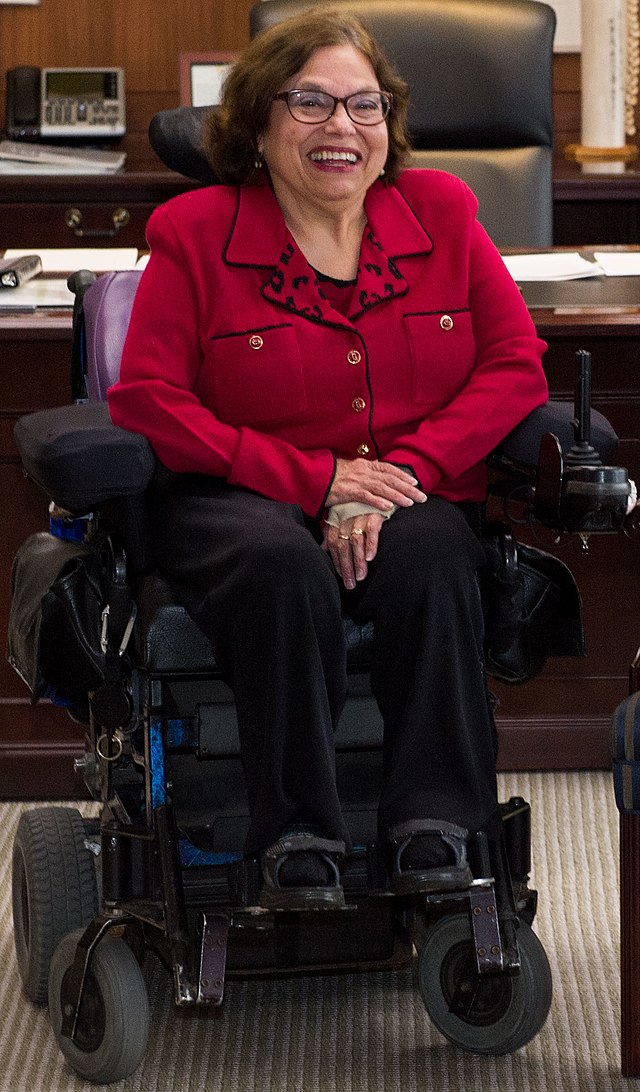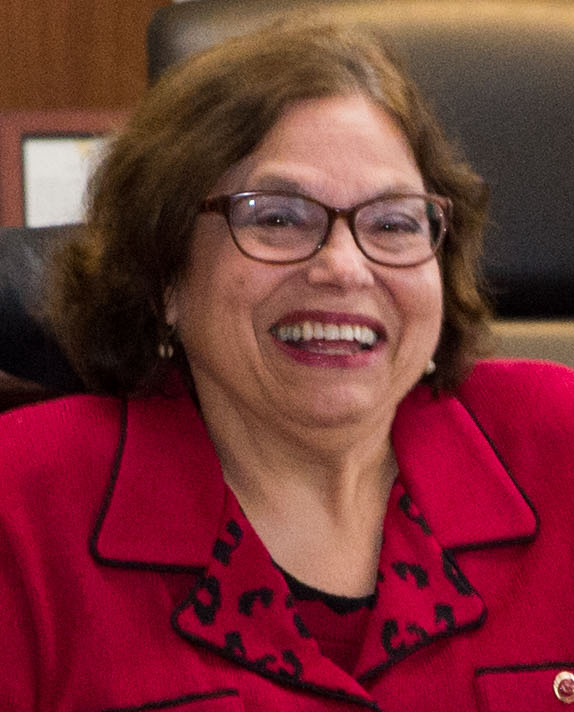
A tribute from The DaSy Center
The “mother” of the disability rights movement, Judy Heumann, passed away on March 4 in Washington, DC. A tireless activist and advocate, she helped develop legislation that would become the Individuals with Disabilities Education Act (IDEA), and she was a key figure in other federal legislation to increase access and inclusion for people with disabilities.
In this blog post, the DaSy Center remembers Judy Heumann. We especially reflect on how she paved the way for the work we do today to use data to improve education programs and outcomes for young children with disabilities and their families.
Facing barriers
Heumann encountered discrimination and institutional barriers to education from an early age. She contracted polio at age 2 and started using a wheelchair for mobility. At age 5, she was denied access to public kindergarten because she was considered a “fire hazard.” When she was finally permitted to enroll in public school at age 9, her learning took place in a school basement along with other students with disabilities.
As a young adult, Heumann continued to face systemic barriers. After earning a bachelor’s degree in speech and theater from Long Island University in 1969, she was denied a teaching license in New York City because the board of education decided she would not be able to evacuate her students safely in the event of a fire.
Pushing back
Yet Heumann did not yield to such barriers, but met them with activism and advocacy. She filed and won a lawsuit against the New York Board of Education and gained her teaching license. She also helped organize a 25-day sit-in at the U.S. Department of Health, Education, and Welfare headquarters in San Francisco to push for implementation of Section 504 of the Rehabilitation Act of 1973.
“Judy lived her life in service to others with fierce determination, coupled with passion,” said DaSy staff member Deb Ziegler, who was Heumann’s friend and colleague. “‘No’ was not in her vocabulary.”
Continuing her advocacy as a legislative assistant in 1974, Heumann worked with a U.S. Senate committee to develop Public Law 94-142, which supported “states and localities in protecting the rights of, meeting the individual needs of, and improving the results for infants, toddlers, children, and youth with disabilities and their families.” In 1990, the reauthorized law became the Individuals with Disabilities Education Act (IDEA), which drives our work in the DaSy Center today.
Moving forward
Heumann later moved to policymaking and diplomacy. From 1993 to 2001, as assistant secretary for the Office of Special Education and Rehabilitative Services, she was responsible for all federal education programs for children and youth with disabilities and their families. She also spoke out in support of further policy efforts to increase access, like the Assistive Technology Act of 1998.
In Being Heumann: An Unrepentant Memoir of a Disability Rights Activist, Heumann writes about how “we tend to think that equality is about treating everyone the same, when it’s not. It’s about fairness. It’s about equity of access.”
Heumann was committed to advancing disability rights around the world. In 1983, she co-founded the World Institute on Disability, and from 2002 to 2006 she served as the World Bank’s first advisor on disability and development. During the Obama Administration, she was the first special advisor for international disability rights at the U.S. Department of State.
Heumann also recognized the need to improve how data on disabilities are defined, collected, analyzed, and used. In 2016, she coauthored a book chapter on the Washington City Group, formed by the United Nations to improve disability statistics across the globe.
Inspiring us
Disability rights and inclusion have come a long way since a young Judy Heumann was denied access to public kindergarten in the 1950s. And, as Heumann often pointed out, there is still much work to be done to ensure equitable opportunities for all young children with disabilities and their families.
“Her legacy inspires me,” said Ziegler, “and I know others in the field to make a ‘fuss’ as she did, with kindness, commitment, purpose, and advocacy, to ensure all are meaningfully included in our society.”
The DaSy Center encourages you to also reflect on Judy Heumann’s efforts as you continue your work to improve data systems, programs, and outcomes for students.
The DaSy Center offers special thanks to Charles Harding and Deb Zeigler for their work on this blog.
Published April 2023.


